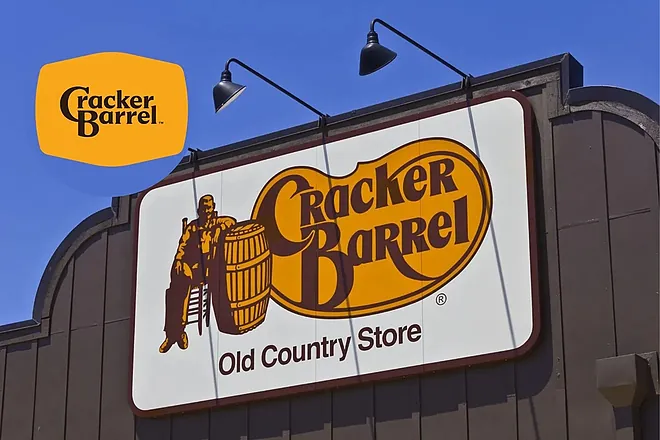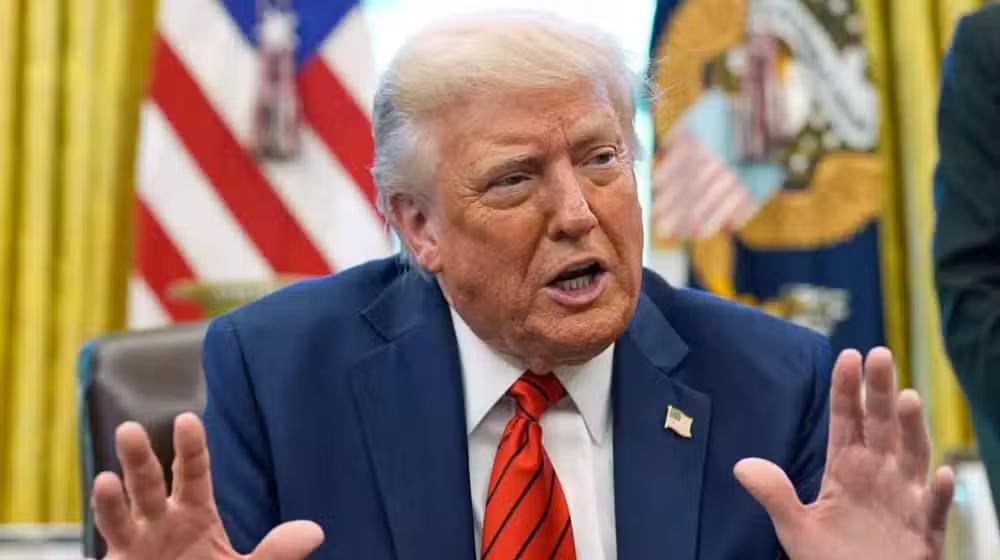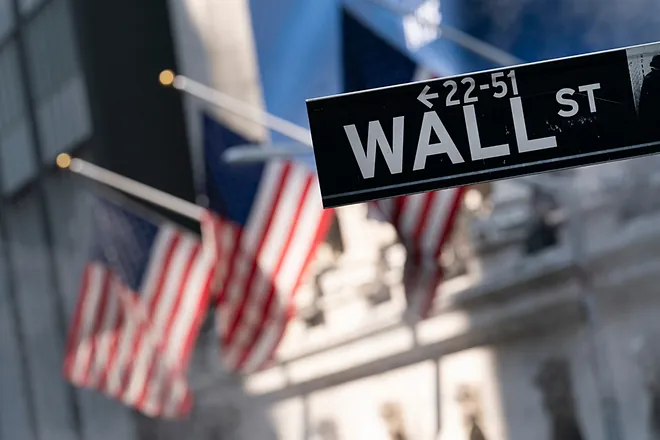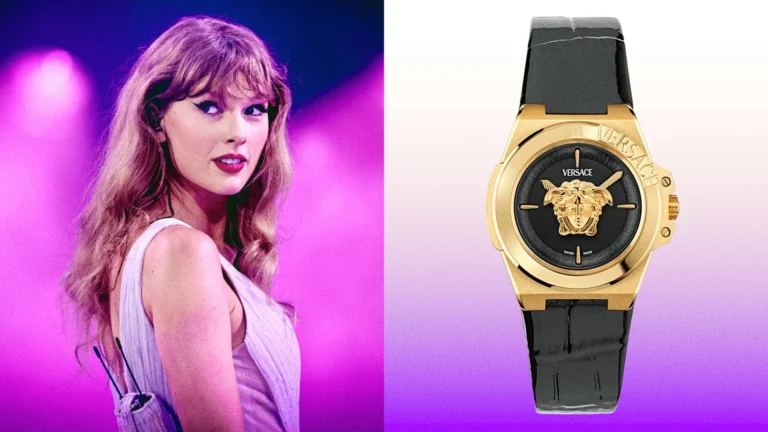- Cracker Barrel returns to its original logo after customer backlash and a 12% stock drop.
- The redesign removal of the “Old Timer” triggered a culture war and viral boycott campaigns.
- Shares rebounded 8% after the reversal, proving how much brand identity impacts financial performance.
- The controversy reveals the company’s deeper challenge: balancing modernization with loyalty to tradition.
- Branding, in today’s climate, isn’t just marketing — it’s cultural storytelling.
Cracker Barrel returns to its original logo after a failed rebranding attempt that triggered viral backlash, a stock market plunge, and a heated culture war. The decision highlights the challenges legacy brands face when balancing tradition with modernization.
This isn’t just a story about a logo. It’s about identity, nostalgia, and the risks companies take when they underestimate the emotional connection customers have with a brand.

Why Cracker Barrel Returns to Its Original Logo
The controversy began when Cracker Barrel unveiled a minimalist redesign of its logo, removing the iconic “Old Timer” character leaning on a barrel.
- Original logo (1977): Designed by Bill Holley, featuring a bearded man leaning against a barrel — a symbol of southern hospitality and roadside Americana.
- New minimalist design (2025): Clean lines, no man, modern typography.
- Immediate fallout: Customers felt the redesign erased the brand’s identity.
For decades, the logo wasn’t just a design choice — it was part of the cultural landscape of the South and Midwest. Removing it triggered outrage far beyond aesthetics.
The Logo That Sparked a Culture War
Why did this redesign hit such a nerve?
- Cultural identity: Cracker Barrel represents road trips, rocking chairs, and comfort food. To many, the “Old Timer” embodied that spirit.
- Generational divide: Boomers and Gen X felt betrayed, while younger audiences were indifferent or mildly supportive.
- Political undertones: In today’s polarized climate, even logos are read through ideological lenses.
Social media turned it into a battleground:
- Hashtags like #BoycottCrackerBarrel and #SaveTheOldTimer trended.
- Memes compared the redesign to “erasing history.”
- Influencers amplified the backlash, linking the change to “corporate sanitization.”
In short, the new design was seen as abandoning tradition for trendiness.
We thank our guests for sharing your voices and love for Cracker Barrel. We said we would listen, and we have. Our new logo is going away and our “Old Timer” will remain.
— Cracker Barrel (@CrackerBarrel) August 26, 2025
At Cracker Barrel, it’s always been – and always will be – about serving up delicious food, warm… pic.twitter.com/C32QMLOeq0
Stock Market Fallout
The reaction wasn’t just cultural — it had immediate financial consequences.
| Event | Market Reaction |
|---|---|
| Logo redesign announcement | Shares dropped 12% |
| Social media boycott trends (#BoycottCrackerBarrel) | Stock fell further |
| Company reversed course, restoring old logo | Shares rebounded 8% after-hours |
This illustrates a key point: brand identity has direct market value. A design change, if mishandled, can wipe out millions in market capitalization overnight.
Why the Original Logo Matters
The return of the old logo wasn’t just nostalgia. It was about Cracker Barrel’s unique place in American culture.
- More than food: With 650+ locations, Cracker Barrel combines restaurants with country-style gift shops selling candies, rocking chairs, and Americana décor.
- Roadside tradition: For many families, stopping at Cracker Barrel is as essential as filling up the gas tank.
- Symbol of continuity: The “Old Timer” isn’t just a character — he represents warmth, memory, and consistency.
Cracker Barrel returns to its original logo because customers weren’t buying just pancakes — they were buying a feeling of timelessness.
CEO’s Plan Meets Reality
CEO Julie Felss Masino had an ambitious vision:
- Remodel outdated stores
- Introduce fresher menu items
- Appeal to Gen Z, where Cracker Barrel struggles most
- Modernize branding to stay relevant
The new minimalist logo was part of this strategy. But the execution revealed a dangerous blind spot: the brand underestimated how deeply customers identified with its visual heritage.
For a chain whose loyalty base skews older and conservative, modernization felt like cultural betrayal.
Between Nostalgia and Business Strategy
This controversy highlights the brand’s ongoing dilemma:
- Stay traditional: Keeps loyal customers happy but risks stagnation with younger demographics.
- Push modernization: Attracts new audiences but risks alienating core customers.
The logo fiasco proves how delicate that balance is. Cracker Barrel returns to its original logo not just to save face, but to signal that tradition still comes first.
Branding Lessons from Cracker Barrel
There are bigger marketing lessons here that extend beyond one company:
1. Logos Are Emotional Assets
Customers tie memories, identity, and loyalty to symbols. Changing them lightly can feel like breaking trust.
2. Tradition Can Be a Business Strategy
For brands like Cracker Barrel, tradition itself is the selling point. “Modern” isn’t always better.
3. Social Media Amplifies Backlash
Hashtags can tank stock prices. Companies must anticipate online reactions before rolling out brand changes.
4. Generational Marketing Requires Balance
Appealing to Gen Z is crucial, but not at the expense of alienating your core. Dual-track strategies often work better: modernize the menu, not the logo.
Cracker Barrel as a Mirror of America
This story goes deeper than marketing. It shows how brands mirror cultural divides:
- Rural vs. urban values
- Tradition vs. progress
- Nostalgia vs. reinvention
In a fractured America, Cracker Barrel returns to its original logo becomes symbolic: sometimes breakfast itself feels political.
What Happens Next?
With the old logo restored, Cracker Barrel’s immediate crisis has cooled. But challenges remain:
- Gen Z engagement: How does the brand grow with younger audiences without alienating older ones?
- Modernization strategy: Store remodels and menu updates are still planned — will they face similar backlash?
- Investor confidence: The stock rebound shows resilience, but future missteps could be costly.
One thing is clear: the “Old Timer” is here to stay.
The moral of this saga? Don’t touch the barrel.
Cracker Barrel’s return to its original logo proves that some traditions carry more weight than corporate strategy. For a brand built on nostalgia and southern comfort, the “Old Timer” isn’t just a piece of design — he’s the soul of the business.
And for now, he’s back where customers want him: leaning on the barrel, rocking chair nearby, pancakes on the table.







